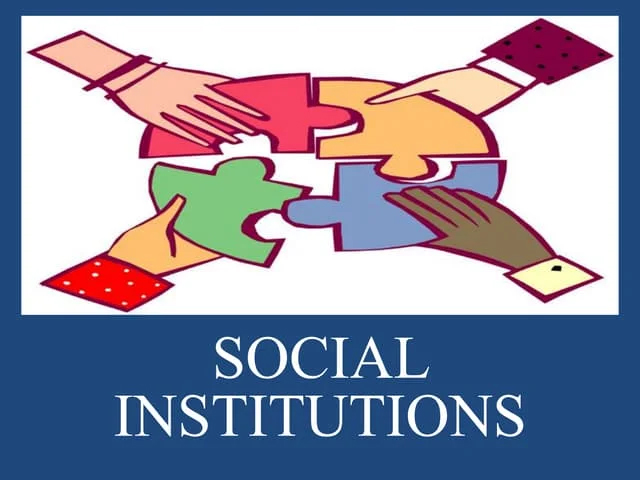Dr Jyoti Sharma
Human Behavior is a complex term. It has been defined by many scholars in different ways. In simple form it is how an individual or a group acts or conduct themselves when interacting with another individual, group or in an event. Its study has played an important role in improving the lives of people who have mental health and behavioral disorders or whose behavior is unacceptable as per social norms.
A same person can behave differently in different conditions and situations. That means a human behavior, somehow is guided by the situation. For e.g. A child of 5-6 years of age behaves differently in school with teachers and friends and the same child behaves totally differently at home. Here the comfort of home and parent’s love and care makes his/her behavior care free while the discipline in school motivates him to behave differently. This makes clear that the social institutions/ social set-up have a deep rooted impact on the behavior of an individual.
Social Institution is an important concept in Sociology. It is not a group of people or an organization. Institutions do not have members rather they have followers who have to accept the rules and social norms. It may also be understood as mechanisms to govern the behavior of individuals within a given community. Social Institutions are the establishment in a society that makes the society function. They work as the backbone of a society. Without the social institutions, a society cannot achieve full- fillment in terms of economy, academy or relationships. When there are no rules and regulations in a society, people are more likely to indulge in crime and other harmful activities. Social institutions help in taming such activities. They contribute in organizing a society and its people. There are different types of social institutions, which come with a set of rules and norms and expects people to follow them.
Five Basic Social Institutions
Family as a Social Institution: What do we mean by a Family? When we hear the word family, a house with a mother, father, brother and sister comes into our mind and it is the most general description of a family. But a family is actually the unity of two or more people through blood relation, marriage or adoption. Family in a society works as a social support for an individual. When a child is raised in a family with doting parents, grandparents, brothers and sisters he or she gets to experience a positive upbringing, which continues when he or she actually grows up.
Marriage as a Social Institution: Marriage is that social institution which, was created to keep a healthy regulation of a person’s life. It is in a close association with the institution of family. The norms of marriages vary from culture to culture. A marriage is the process of uniting two different people from different families together through a ceremony/ agreement. It serves the purpose of finding companionship.
Education as a Social Institution: Education is another vital social institution which has a strong and deep rooted impact on human behavior. Just as economy and government, education also caters to the opportunities of growth in a society. If a child is given proper and sufficient education, he/she gets an exposure to the worldly affairs and learns to judge situations better. He/she also passes knowledge and contributes to the betterment of society.
Economy as a Social Institution: Economy is that social institution which produces and distributes the goods and services and monitors their consumption. The goods and services are two of the basic things that the people of a country require. The two main economic systems are Capitalism and Socialism. The economy is an institution that keeps on changing. There are many economic trends like diversity in the work place, globalization, self-employment etc. The transaction of goods and services requires currencies as a medium. The introduction of currencies in today’s world has made the transactions much easier and advance. Before the currencies came into existence, the barter system was the only medium of transaction, barter system is where a person provides good and services in return of other goods and services.
Politics as a Social Institution: Politics is a significant social institution. It is the function of a society in which all the powers are given to a particular group of people chosen by the citizens through poll. From the type of food we eat to the type of security we get when we go out of our houses, everything is decided by that group of people in power. So, voting for a party is a crucial decision for every citizen. Every society has politics today by the name of Government. The Government makes rules namely laws for the entire country, and asks the people to follow them. Breach in those laws result in imprisonment and penalties. There are different parties in politics of a country.
Thus in conclusion social institutions are the medium for transferring cultural aspects like knowledge, customs, values and others from generation to generation. Hence, social institutions are important for the social life. These institutions regulate and define the human behavior both in positive as well as negative ways. Thus in short without the social institutions, a society cannot achieve desirable or appropriate behavior in terms of economy, academy or relationships. When there are no rules and regulations in a society, people are more likely to indulge in crime and other violent activities. Social institutions help in taming such activities. Social institutions create stable patterns of interactions based on mutual expectations and contribute to overall stability. It is an interrelated system of social norms and social roles that are organized and provide patterns of behaviors that contribute to meet the basic social needs of the society in the form of desirable behavior.
(The author is Joint Director (E&S), Finance Deptt.)
Trending Now
E-Paper


